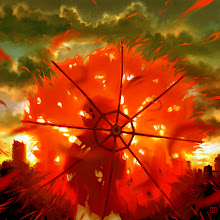Sleep paralysis is a condition characterized by temporary paralysis of the body shortly after waking up (known as hypnopompic paralysis) or, less often, shortly before falling asleep.
Sleep paralysis occurs when the brain awakes from a REM state, but the bodily paralysis persists. This leaves the person fully aware, but unable to move. In addition, the state may be accompanied by hypnagogic hallucinations (describes vivid dreamlike auditory, visual, or tactile sensations)
Symptoms of sleep paralysis can be either one of the following or a combination:
Paralysis: this occurs after waking up or shortly before falling asleep. the person cannot move any body part, cannot speak, and only has minimal control over blinking and breathing. This paralysis is the same paralysis that occurs when dreaming. The brain paralyzes the muscles to prevent possible injury during dreams, as some body parts may move during dreaming. If the person wakes up suddenly, the brain may still think that it is dreaming, and sustains the paralysis.
Paralysis: this occurs after waking up or shortly before falling asleep. the person cannot move any body part, cannot speak, and only has minimal control over blinking and breathing. This paralysis is the same paralysis that occurs when dreaming. The brain paralyzes the muscles to prevent possible injury during dreams, as some body parts may move during dreaming. If the person wakes up suddenly, the brain may still think that it is dreaming, and sustains the paralysis.
Hallucinations: Images or speaking that appear during the paralysis. The person may think that someone is standing beside them or they may hear strange sounds. These may be dreamlike, possible causing the person to think that they are still dreaming.
These symptoms can last from mere seconds to several minutes.
Although SP can be very frightening, It isn't harmful and happens each and every night to EVERYONE!! Your just asleep when it does.
Sleep paralysis occurs during REM sleep, thus preventing the body from manifesting movements made in the subject's dreams. Very little is known about the physiology of sleep paralysis. In particular, low levels of melatonin may stop the depolarization current in the nerves, which prevents the stimulation of the muscles, to prevent the body from enacting the dream activity (e.g. preventing a sleeper from flailing his legs when dreaming about running
Some studies have concluded that many or most people will experience sleep paralysis at least once or twice in their lives.
Many people who commonly enter sleep paralysis also suffer from narcolepsy. In African-Americans, panic disorder occurs with sleep paralysis more frequently than in Caucasians. Some reports read that various factors increase the likelihood of both paralysis and hallucinations. These include:
Sleeping in an upwards supine position
Increased stress
Sudden environmental/lifestyle changes
A lucid dream that immediately precedes the episode. Also conscious induction of sleep paralysis is a common technique to enter a state of lucid dreams, also known as WILD .
(which I'll talk about shortly)


No comments:
Post a Comment